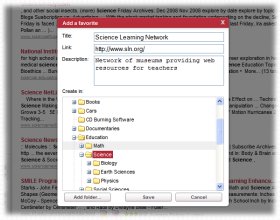|
Education
Web
Viewing 1-1 of 1 total results
Component A: Make the case for practitioners — Develop an effective case statement to convince primary care providers of the need to incorporate occupational and environmental health and pesticide awareness into their practice settings. Component B: Define practice...
1
0
Component A: Make the case for practitioners — Develop an effective case statement to convince primary care providers of the need to incorporate occupational and environmental health and pesticide awareness into their practice settings. Component B: Define practice skills and guidelines — Produce National Guidelines that recommend practice behaviors and guidelines for the recognition, management, and prevention of pesticide exposures, for all practicing health care providers; define accompanying content related to
50
0
http://www.neefusa.org/pdf/ImplementationPlandocument.pdf#page=50
www.neefusa.org/pdf/ImplementationPlandocument.pdf#page=50
model programs. <span class="highlight">Component</span> A: Make the case <span class="highlight">for</span> change in educational settings — Develop an effective case statement to convince decision-makers about the need <span class="highlight">for</span> environmental health and pesticide education in medical and nursing educational institutions. <span class="highlight">Component</span> B: Define competencies and integration strategies <span class="highlight">for</span> curricula — Produce National Guidelines that recommend competencies specific to the <span class="highlight">recognition</span>, management and prevention <span class="highlight">of</span> pesticide exposures, <span class="highlight">for</span> all basic and advanced training in medicine
55
0
http://www.neefusa.org/pdf/ImplementationPlandocument.pdf#page=55
www.neefusa.org/pdf/ImplementationPlandocument.pdf#page=55
E D U C A T I O N 44 National Strategies <span class="highlight">for</span> Health Care Providers: Pesticides Initiative Implementation Plan EDUCATION <span class="highlight">COMPONENT</span> B: Define Competencies and Integration Strategies <span class="highlight">for</span> Curricula Statement Produce National Guidelines that recommend competencies specific to the <span class="highlight">recognition</span>, management and prevention <span class="highlight">of</span> pesticide exposures, <span class="highlight">for</span> all basic and advanced training in medicine and nursing; define accompanying content areas; suggest methods <span class="highlight">of</span> integration into curricula; and provide access to
63
0
http://www.neefusa.org/pdf/ImplementationPlandocument.pdf#page=63
www.neefusa.org/pdf/ImplementationPlandocument.pdf#page=63
E D U C A T I O N 52 National Strategies <span class="highlight">for</span> Health Care Providers: Pesticides Initiative Implementation Plan EDUCATION <span class="highlight">COMPONENT</span> C: Assess Educational Settings Statement Conduct an assessment <span class="highlight">of</span> the target audience <span class="highlight">of</span> educational institutions to determine: (a) amount <span class="highlight">of</span> existing coursework, (b) faculty members’ current knowledge and skill levels, and comfort with teaching pesticide-related topics, and (c) how faculty and educational institutions will best respond to educational programs and <span class="highlight">information</span>
69
0
http://www.neefusa.org/pdf/ImplementationPlandocument.pdf#page=69
www.neefusa.org/pdf/ImplementationPlandocument.pdf#page=69
gynecology, emergency medicine, or preventive medicine/public health). � Commitment <span class="highlight">of</span> staff time (part-time health educator and administrative support). � Existing and proposed partnerships within the academic health center to ensure that the faculty champion’s work reaches all schools within the institution. � Teaching and curriculum development <span class="highlight">component</span>, including baseline <span class="highlight">analysis</span> <span class="highlight">of</span> student knowledge and skills. � Institutional change <span class="highlight">component</span> with specific strategies articulated <span class="highlight">for</span> changing
76
0
http://www.neefusa.org/pdf/ImplementationPlandocument.pdf#page=76
www.neefusa.org/pdf/ImplementationPlandocument.pdf#page=76
<span class="highlight">Component</span> A: Make the case <span class="highlight">for</span> practitioners — Develop an effective case statement to convince primary care providers <span class="highlight">of</span> the need to incorporate occupational and environmental health and pesticide awareness into their practice settings. <span class="highlight">Component</span> B: Define practice skills and guidelines — Produce National Guidelines that recommend practice behaviors and guidelines <span class="highlight">for</span> the <span class="highlight">recognition</span>, management, and prevention <span class="highlight">of</span> pesticide exposures, <span class="highlight">for</span> all practicing health care providers; define accompanying content related to
77
0
http://www.neefusa.org/pdf/ImplementationPlandocument.pdf#page=77
www.neefusa.org/pdf/ImplementationPlandocument.pdf#page=77
P R A C T I C E 66 National Strategies <span class="highlight">for</span> Health Care Providers: Pesticides Initiative Implementation Plan the United States should incorporate environmental considerations in prevention, education, management, and referral. <span class="highlight">Component</span> F: Create incentives <span class="highlight">for</span> change — Identify and promote a number <span class="highlight">of</span> incentives to incorporate appropriate prevention, <span class="highlight">recognition</span>, and management <span class="highlight">of</span> pesticide-related health conditions into health care practices. Specifically: (1) provide grant support to practicing providers
81
0
http://www.neefusa.org/pdf/ImplementationPlandocument.pdf#page=81
www.neefusa.org/pdf/ImplementationPlandocument.pdf#page=81
P R A C T I C E 70 National Strategies <span class="highlight">for</span> Health Care Providers: Pesticides Initiative Implementation Plan PRACTICE <span class="highlight">COMPONENT</span> B: Define Practice Skills and Guidelines Statement Produce National Guidelines that recommend practice skills and guidelines <span class="highlight">for</span> the <span class="highlight">recognition</span>, management, and prevention <span class="highlight">of</span> pesticide exposures, <span class="highlight">for</span> all practicing health care providers; define accompanying content related to expected behavior; suggest methods <span class="highlight">of</span> integration into practice and training settings; and provide access
85
0
http://www.neefusa.org/pdf/ImplementationPlandocument.pdf#page=85
www.neefusa.org/pdf/ImplementationPlandocument.pdf#page=85
P R A C T I C E 74 National Strategies <span class="highlight">for</span> Health Care Providers: Pesticides Initiative Implementation Plan PRACTICE <span class="highlight">COMPONENT</span> C: Assess Knowledge and Skills <span class="highlight">of</span> Practitioners Statement Conduct an assessment <span class="highlight">of</span> the target audience <span class="highlight">of</span> primary care providers to determine: (a) providers’ current knowledge; and (b) how providers will best respond to educational programs and <span class="highlight">information</span> resources. This assessment will be comprised <span class="highlight">of</span> a literature review and a range <span class="highlight">of</span> needs assessment analyses. Expected Outcomes
94
0
http://www.neefusa.org/pdf/ImplementationPlandocument.pdf#page=94
www.neefusa.org/pdf/ImplementationPlandocument.pdf#page=94
P R A C T IC E National Strategies <span class="highlight">for</span> Health Care Providers: Pesticides Initiative Implementation Plan 83 PRACTICE <span class="highlight">COMPONENT</span> F: Create Incentives <span class="highlight">for</span> Change Statement Identify and promote a number <span class="highlight">of</span> incentives to incorporate appropriate prevention, <span class="highlight">recognition</span>, and management <span class="highlight">of</span> pesticide-related health conditions into health care practices. Specifically: (1) provide grant funding to practicing providers <span class="highlight">for</span> interventions and research related to pesticide poisonings and exposures; (2) create free and
100
0
http://www.neefusa.org/pdf/ImplementationPlandocument.pdf#page=100
www.neefusa.org/pdf/ImplementationPlandocument.pdf#page=100
credibility and usefulness <span class="highlight">of</span> resources by establishing a national review board to evaluate them. <span class="highlight">Component</span> A: Inventory existing resources — Determine what educational and <span class="highlight">information</span> programs and materials <span class="highlight">for</span> health care providers exist currently in education and practice settings and what gaps should be filled. <span class="highlight">Component</span> B: Establish a national review board — Create a national body to determine assessment criteria and evaluate existing resources, with the goal <span class="highlight">of</span> identifying, selecting, and assessing the ideal
|
